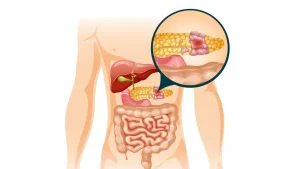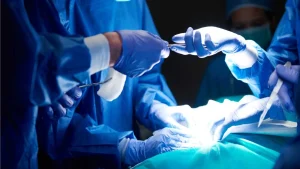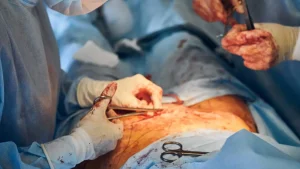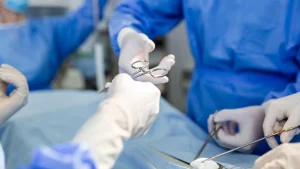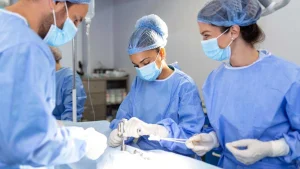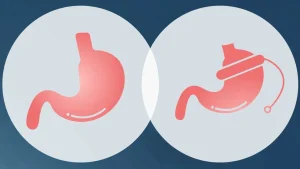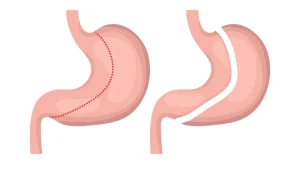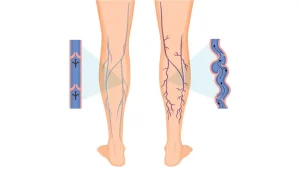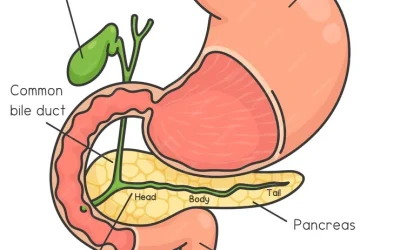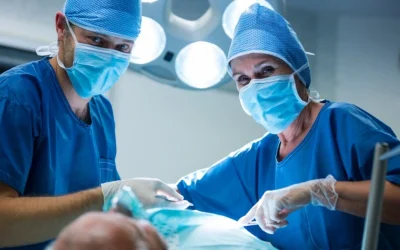Pancreatic Cancer Suregon In Goregaon
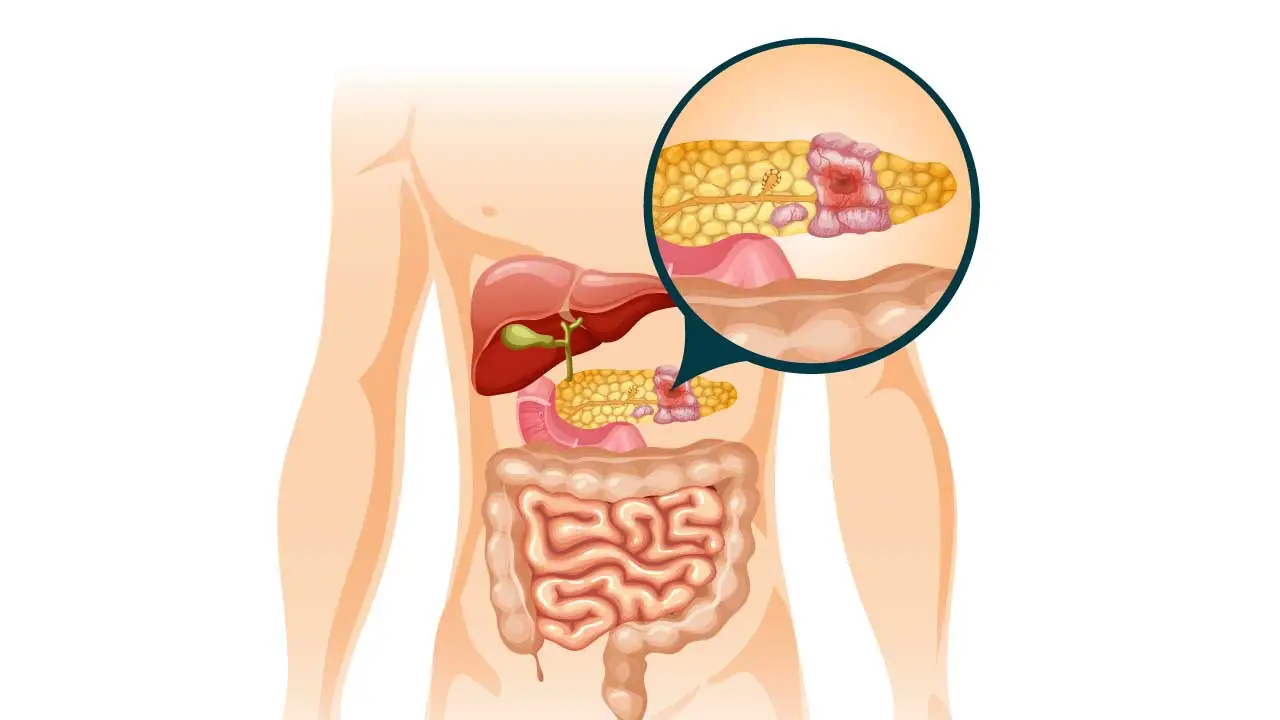
Overview
Dr Ankit Potdar’s team of Best Pancreatic Surgeons in Goregaon and medical professionals are committed to providing pancreatic cancer patients with individualized care, specialized through laparoscopic surgery. Our expertise in this minimally-invasive approach ensures a unique opportunity for the best possible outcomes while minimizing risk and recovery time. Explore our qualifications, treatment options, process guidance and more – giving you all the resources necessary to fight back against such a complex illness.
Pancreatic Cancer Surgeon in Mumbai Chembur
What is Pancreatic Cancer ?
Pancreatic cancer is one of the most aggressive and deadly forms of cancer. It is characterized by abnormal cell growth in the pancreas, a small organ located in the abdomen that helps produce important hormones and aids digestion.
Pancreatic cancer typically has no early symptoms and can be difficult to detect without medical testing. Treatment usually involves surgery and chemotherapy, although some individuals may be eligible for clinical trials involving novel treatments. Early detection and treatment are key to improving outcomes for pancreatic cancer patients.
Risks and Symptoms Associated with Pancreatic Cancer
Pancreatic cancer is one of the deadliest forms of cancer, with an overall five-year survival rate of just 10-15%. The primary risk factors for pancreatic cancer include age, smoking, family history of the disease, and certain genetic mutations.
Common symptoms associated with pancreatic cancer include abdominal pain or discomfort, back pain, jaundice, weight loss, appetite loss, nausea and vomiting. Individuals with these symptoms should see their doctor for further testing to determine whether they have pancreatic cancer or another condition.
Treatment Process
Treatment for pancreatic cancer typically involves a combination of surgery, chemotherapy and/or radiation therapy. Prior to any treatment, patients will go through a pre-operative evaluation which includes imaging tests such as CT scans and MRI scans to evaluate the extent of the cancer. The results from these scans will determine what kind of treatment is best for each individual patient.
Surgery is the most common form of treatment for pancreatic cancer and may involve removing or reconstructing parts of the pancreas. Laparoscopic surgery is typically preferred over traditional open surgery as it offers smaller incisions, less pain, shorter recovery times, and improved quality of life after treatment.
Post-operative care usually involves monitoring the patient’s healing process and performing any necessary follow up treatments. Depending on the type of surgery performed, patients may be required to stay in hospital for several days or weeks.
After recovery from surgery, follow-up care usually includes regular checkups with oncologist & onco-surgeon to monitor how well any remaining cancer cells are responding to treatment. A good post-operative care plan also involves lifestyle changes such as quitting smoking or drinking alcohol, eating nutritious food and exercising regularly to improve overall health.
Why Laparoscopic Surgery For Pancreatic Cancer?
Laparoscopic surgery is a minimally invasive surgical procedure that is performed using thin instruments and a camera inside the patient’s body. During the procedure, small incisions are made in the abdomen instead of one large cut.
This allows doctors to inspect and operate on the internal organs without making an open incision. Laparoscopic surgery differs from traditional open surgery in that it typically requires fewer incisions (only four to five), results in less pain and a shorter recovery time.
Benefits of Laparoscopic Surgery Include
- Smaller incisions which can greatly reduce scarring and
- Faster healing times compared to traditional open surgery.
- Additionally, studies have shown that patients undergoing laparoscopic pancreatic cancer surgery experience shorter hospital stays, fewer complications and improved overall quality of life after treatment.
Frequently Asked Questions about Pancreatic Cancer
-
How Long does the Surgery Take?
The length of time it takes to perform surgery for pancreatic cancer depend on a variety of factors such as the type of procedure being performed, the patient’s overall health and the complexity of the condition. Generally speaking, it can take anywhere from 1-5 hours but may take longer in some cases. It is important to discuss your individual case with your doctor so that you have a clear understanding of how long to expect the surgery to last.
-
What is the Recovery Time?
Recovery from surgery for pancreatic cancer typically takes several weeks and is dependent on the patient’s overall health, the type of surgery performed, and any follow-up treatments.
During this time patients may experience soreness and discomfort around the incision site depending on how extensive the procedure was. Patients are usually recommended to take short walks several times a day to help reduce pain and swelling.
Patients should also take medications as prescribed by their doctor to help manage any pain or discomfort. It is important to keep in mind that every person’s recovery process is different and could take longer than expected. Following up with your doctor regularly during this time is essential for ensuring a successful recovery.
-
What are the Risks of Laparoscopic Surgery?
Laparoscopic surgery carries the same risks as traditional open surgery, including bleeding and infection. Additionally, there is a risk of abdominal wall injury or damage to other organs when using a laparoscope for the procedure.
Due to its minimally invasive nature, laparoscopy can have a significantly lower risk of post-surgery complications than open surgery, but it is important to discuss any potential risks with your doctor prior to undergoing the procedure.
-
Will I Need Chemotherapy or Radiation Therapy After the Surgery?
Chemotherapy or radiation therapy may be recommended after pancreatic cancer surgery, in combination with other treatments such as immunotherapy. Your doctor will discuss the treatment options available to you, and whether chemotherapy or radiation is necessary.
Chemotherapy and radiation can help reduce the risk of the cancer returning, but the effects of these treatments can also be very serious. Make sure to discuss health risks, potential side effects, and any other questions you may have with your doctor before beginning either type of treatment.
-
How Long do I Need to Stay in the Hospital?
The amount of time you spend in the hospital after laparoscopic surgery depends on several factors, including the type of procedure performed, your health before and after the operation, and any additional treatments necessary.
Generally, most people stay for one to two days following a laparoscopy procedure. In cases involving more complicated operations or where intensive care is required afterwards, an extended stay may be necessary. Talk to your doctor about what to expect in terms of post-operative care and recovery time.
About Dr. Ankit Potdar
Dr. Ankit Potdar is a leading expert in pancreatic cancer surgery, providing cutting-edge treatments and care to patients facing this difficult illness. Dr. Potdar has performed laparoscopic surgeries for a variety of conditions, with a particular focus on treating pancreatic cancer.
He works closely with each patient to design an individualized treatment plan that includes both preoperative and postoperative care. With years of experience in the field and an unwavering commitment to excellence, Dr. Potdar strives to provide the best outcomes possible for every patient he serves.
Our Services
Pancreatic Cancer
Pancreatic cancer is a type of cancer that affects the pancreas – an organ located in the abdomen
Colon Cancer / Colorectal Cancer Surgery
Colon cancer is a serious and potentially life-threatening disease.
Hernia Laparoscopic Surgery
A hernia is the protrusion of an organ or tissue through a weak or damaged area in the abdominal wall
Piles Surgery
Piles, also known as hemorrhoids, are swollen veins in the anal and rectal area.
Appendix Surgery
Pain or discomfort in your abdomen, it is possible that you may have appendicitis.
Fistula Surgery
A fistula is an abnormal connection between two organs or tissues that can lead to complications.
Gallstone Surgery
Gallstone Surgery is a minimally invasive procedure to remove gallstones.
Gastric Band Surgery
Gastric Band Surgery is a safe, non-invasive bariatric procedure that helps you lose weight quickly and safely
Gastric Bypass Surgery
Gastric Bypass Surgery is a minimally invasive procedure that can help you to achieve your weight loss dreams.
Gastric Sleeve Surgery
Gastric sleeve surgery, an effective and popular procedure for achieving significant weight loss.
Varicose Veins
Varicose veins are enlarged, twisted and swollen veins that occur mainly in the lower legs and feet.
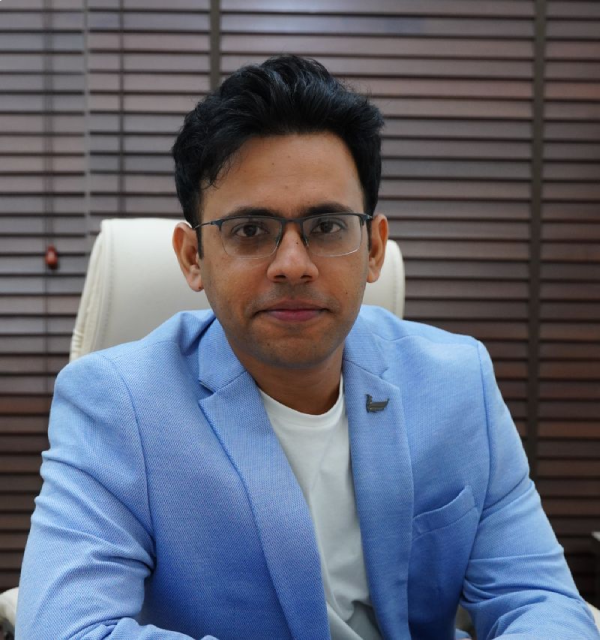
PROFILE
About Dr. Ankit Potdar
Dr. Ankit Potdar is one of the best laparoscopic surgeon in Mumbai, India. He has extensive knowledge and training in advanced laparoscopic and robotic surgery, and is known for his precision, expertise, and compassionate approach to patient care.
He is an expert in general, oncological, advanced laparoscopic GI surgery, Thoracic and Esophageal surgery. He is currently associated with SRV Hospital, Goregaon West and Chembur Mumbai.
He has extensive experience in performing minimally invasive surgeries for various conditions, including gastrointestinal diseases, obesity, hernias, and gallbladder problems.
Patient Treated By Dr. Ankit Potdar
People heavily rely on reviews from other patients when choosing a healthcare provider
Dr. Ankit has done my Brother Harnia Surgery. It went well and my brother recovered so fast. Really good Dr. .Explained every precautions and give full assistance in the follow-up as well.. Thank you Dr. Ankit
Best doctor i ever met. Friendly type nature, my umbilical hernia surgery was done by dr ankit poddar and always recving my calls reply by late nights also ...
Dr Ankit Potdar is a gem of a person. I have been operated for ovarian cancer under his care and we are very satisfied with the treatment received. Doctor is very honest and straightforward and also helped us with the treatment protocol post surgery.
Patient Knowledge Center -Blogs
Blogs
Symptoms of Gallbladder Stones ?
Dr. Ankit Potdar, a renowned gallbladder surgeon in Chembur, specializes in treating gallbladder stones. Learn about symptoms and treatme...
Advantages of Laparoscopic Surgery for Hernia Repair
Transforming Hernia Repair: Meet Dr. Ankit Potdar, Mumbai’s Laparoscopy Expert! Uncover the Benefits of Minimally Invasive Surgery ...
Effective Methods for Gallbladder Stone Relief
Gallbladder stones, also known as gallstones, are a common medical condition affecting millions worldwide. These hardened deposits can ca...

